Indigenised to decolonise calls the people called Methodist to renewal and repentance as God’s instruments as we were in Wesley’s day. Failure to learn from John Wesley’s experience and his fear is to decline in his Movement and to miss missional essentials about his identity, leadership, spread, history, and theology. Through Wesley’s experience, we know that the true mission field is not abroad preaching to the “heathen.” In 1736, John and Charles, accompanied General Oglethorpe from England to Georgia to oversee the local church and fulfil their dream of witnessing their faith with Native Americans. The hope of reaching the colonists failed. John, while on deck, returning to England encountered families singing while enduring a terrible storm. John, amazed at the peoples’ faith, vowed to learn more, ‘contemplating his own mess of a life in contrast to the people contentedly singing during the storm. One night he heard someone reading a commentary on the book of Romans and began to understand what he was missing: “Since we have been made right in God’s sight by faith, we have peace with God.” As John heard these words describing God’s amazing grace, John would later write: “I felt my heart strangely warmed.”’
Indeed, ‘Wesley’s conversion not only marks the beginning of Methodism but also shapes early modern Christian identity’ and Nigerian Methodism in particular. Indigenised to decolonise empowers us to overcome the sense of mission and leadership amnesia, failure, human pride and capacity of rewriting, reinventing, and manipulating history and theology. Nigeria Methodism at 180 is a testimony about the truth of our founding fathers shaped by their biblical foundation. Nigerian Methodism at 180 reveals how the missionary movement was born.
In Africa and Asia, ‘the crusading mode could not work’ because ‘there was no way that the European powers could defeat powerful Asian empires like China or Japan.’ The missionary movement was born, ‘as Europe began to be secularised, colonial nations like Netherland and Britain were not much interested in spreading the faith at all.’ The emergence of a number of radical Christians, ‘both Protestant and Catholic, eschewed the idea that to extend the faith was to extend Christendom and opted for another way of proclaiming Christ.’ Christendom in this context is the form of Christian life that ‘begun in infancy in a church closely wedded to both British culture and state.’ John Wesley in his own day ‘was the initiator of a revitalisation movement that may be regarded as the prototype of renewal movements that sought to rescue Christendom churches from the stultifying effects of being populated by mostly nominal believers.’[1]
While crusaders were “prepared to compel,” missionaries opted against compulsion and attempted to “demonstrate, invite, explain, entreat, and leave the result with God.” Indigenised to decolonise is about Nigerian Methodism as another missionary mode and way of proclaiming Christ for over 180 years. Unlike the crusader that relied on power to bring people into Christendom, Nigerian Methodism at 180 as missionary mode is indigenised to decolonise as missionaries had to learn “to live on terms set by other people.”[2]
Nigerian Methodism as Nigeria premier missionary church started in 1842, 51 years after the death of John Wesley.[3] This mission was made possible through the Wesleyan Methodist Missionary Society who sent the early missionaries that ‘came ashore from their turbulent sea journey into the beautiful and peaceful city of Badagry – a city that had witnessed the height of man’s inhumanity to man through the ungodly trade in slaves by the European traders.’ Thomas Birch Freeman, born on 6th December 1809 in Twyford, Hampshire, England arrived in Badagry on 24th September, 1842. His mother, Amy Birch was English, his father, Thomas Freeman an African freed slave.[4]
Thomas Birch Freeman, was a Methodist local preacher. He was head gardener on Orwell Park, near Ipswich, Suffolk estate but had lost his post because of his Methodist activism. He was later accepted as a Wesleyan Methodist missionary, appointed a probationary Wesleyan minister at Cape Coast after his ordination in the Islington Chapel in London on 10 October, 1837. He arrived in Cape Coast, Gold Coast (Ghana) in 1838 ‘where a Methodist church of indigenous origin was being tenuously supported by a succession of short-lived English missionaries. He identified ‘a young Fanti preacher, William de Graft, as a suitable minister.’
Thomas Birch Freeman travelled to Britain with de Graft to appeal for funds and recruits for the expanding work … He returned with more missionaries, revisited Kumasi, and finding still greater promise, left a missionary there.’ It was a difficult mission for Freeman because his two previous wives, Elizabeth Booth and Lucinda Cowan died soon after their respective arrivals in Africa. In response to some ‘Yorubas who had become Christians in Sierra Leone and had made their way back to their homeland,’ Freeman asked the Wesleyan mission for help.
Freeman, the most famous Wesleyan Missionary of West Africa sent by the British Wesleyan Methodist Missionary Society visited Nigeria and arrived in Badagry on September 24, 1842.[5] Faced with financial challenges at the beginning,[6] Nigerian Methodism began worship with a make-shift tent which was later discarded and an Agia tree at Badagry was used for outdoor worship. This event marked the advent of Christianity and open air evangelism in Nigeria.[7] Freeman’s usage of a make-shift tent and Agia tree at Badagry for outdoor worship resonates with Mow Cop, the Methodist Holy Ground, a significant mission site in the Methodist Primitive movement. It is on record that, ‘at Mow Cop, Hugh Bourne, one of the co-founder of Primitive Methodism first organised an outdoor camp meeting on 31st May 1807. Bourne, William Clowes and others felt that Methodism had moved away from the principles of its founder John Wesley who had preached in the open air to the “lay” or working-class people. The camp meeting proved popular and so a second was held in the August (1807), but within the Wesleyan movement there was opposition and the authorities referred to it as ‘highly improper.’ Hugh Bourne was asked to cease the meetings but refused, He was eventually excluded from the local Tunstall Methodist circuit in 1808. Bourne and his fellows called themselves the Camp Meeting Methodists they joined with William Clowes and his followers. They became the Primitive Methodist Connexion in 1811. Mow Cop meetings continued to be held on Mow Cop and the 1907 centenary meeting took place over three days and was attended by estimated 100,000 people…By the end of the nineteenth century, the Wesleyan and Primitive Methodists realised they had much in common. They and one other church joined together again to form Methodist Church in Britain in 1932.’
For the furtherance of Freeman’s mission in Nigeria, it is important to note, typical of Modern Missionary Movement,[8] that Wesleyan missionary exercised their prerogative and influences through unidirectional mode of financial supports and strategy. Professor Andrew Walls explained that the approach ‘arose in a particular period of Western social, political, and economic development and was shaped by that period. The support was providentially used in God’s purpose for the redemption of the world.’[9]
The Church Missionary Society (CMS) later sent Henry Townsend to new town Abeokuta (“refuge among rocks”). Townsend was born in Exeter in 1820. The background to CMS mission follows ‘the discovery of the source of the Niger in 1830. Thomas Fowell Buxton combined commercial argument with his zeal against slavery and urged the government to undertake expeditions into the interior.’ In 1842, the first Niger expedition took place and ‘two CMS men were members of it. One of them was Samuel Crowther.’ The expedition was a failure but CMS identified and ‘impressed by Crowther’s ability invited him to England for training and ordination. Shortly after his return to Sierra Leone some of the liberated slaves, who had returned as prosperous merchants to their native country around Lagos, asked for Christian teachers. Crowther and a young Englishman, Henry Townsend, were sent to them and began the Yoruba mission, with its headquarters at Abeokuta.’[10]
It is on record that Townsend first heard of this desire of the people to have missionaries sent to their country eight months after he began to serve in Hastings. He wrote then with delights that, “It gave me much pleasure to hear one of our communicants’ say that they (the Akus) had begun to pray that the Lord would send a missionary to their country.”[11] The local committee at a special meeting held on October 4, 1842 ‘deliberated on the formal request from Hastings that missionaries be sent to the Yoruba country. It resolved that Mr. Townsend “be requested to visit Badagry & its vicinity as soon as a favourable opportunity presents itself, to obtain information relative to a missionary objects; that Andrew Wilhelm the society’s Christian visitor at Hastings be requested to accompany him…”[12] According to Townsend minutes to the Lay Secretary, Townsend and his team left Freetown on November 15, 1842, on their assignment to “Badagry and its vicinity.”[13] In Badagry they met the Methodist missionary to the Gold Coast, Thomas Birch Freeman, and his colleagues, Mr. and Mrs. DeGraft, who were returning from Abeokuta where they too had gone to explore the possibility of starting a mission.[14] Freeman was the sixth successor to Rev Joseph Dunwell, the pioneer Wesleyan Methodist missionary to Ghana. Dunwell missionary work lasted six months before he died and followed by five successors who also died before Freeman took over in Ghana.[15]
After some times with Freeman at Badagry, Townsend left on January 2, 1843 and on January 4, 1843, Townsend was warmly received at Abeokuta ‘by Sodeke, the commander of the Egba army, and his people. Prior to his arrival, the effect of the British anti-slavery campaign had been felt in Abeokuta through the home return from Sierra Leone of relatives that were long thought to have been dead. This obvious achievement of the campaign predisposed the people to mission and Mr. Townsend did not have to convince Sodeke and his Egba compatriots to open their country to mission.’[16] After some times in Abeokuta, Townsend went to Sierra Leone and then to England in October 1843. Townsend went to England with a petition to the Queen from Abeokuta leaders ‘for a British Resident and the means of keeping a direct route to the sea open via the Lagos lagoon.’ While in England and in view of starting Yoruba mission, Townsend was ‘ordained a deacon on Trinity Sunday, 1844, and a priest on October 20 by the bishop of London. He was assigned to begin the work alongside Samuel Crowther, then the foremost Yoruba convert in the service of CMS, and Charles Gollmer, both co-pioneers being already ordained as priests and serving in Sierra Leone. The three missionaries and their wives arrived in Badagry in January 1845.’[17] The news about the death of Sodeke coupled with the war situation in Nigeria delayed their arrival ‘to their intended mission base at Abeokuta. News reached them, barely a week after their arrival in Badagry.[18]
Townsend returned to Abeokuta in 1845 with other missioners. He returned ‘with gifts of bibles from the Queen and a corn mill from the Prince Consort. These gifts caused him to be held in high regard.’ Townsend later set up a printing press and ‘in 1859 began the printing of Iwe-Irohin,’ the first bilingual newspaper in Nigeria. The newspaper ‘served as a medium to spread the Christian gospel, but as time went on, it began to be used by the colonial masters to spread their policies. The success of the paper, as means of government propaganda, led to the springing up of other privately owned papers.’ Townsend founded the Ake Orphanage in 1862 ‘to cater for children whose parents were killed during the various inter-tribal wars of the time, as well as those suffering from sicknesses considered to be a punishment from the gods of the land.’ Townsend represented Egba interests to the British authorities in Lagos in 1866. Townsend’s dual role of’ being a missioner and a government agent not only assisted CMS mission in Nigeria of government support and recognition, ‘his policies had a lasting impact on the people, aside from serving as a foundation for others coming behind to build upon.’[19] Working with Samuel Crowther, a Yoruba Anglican priest, Townsend wrote several hymns in Yoruba and aided in the compilation of Crowther’s Yoruba primer. From 1871 to 1872 Rev Henry and Mrs Townsend were co-principals of CMS Female Institution Lagos Nigeria. Rev Henry Townsend retired and return to Exeter in 1876.[20] Today, Church of Nigeria, Anglican Communion is one of the largest globally.
Missionary morality in relation to Freeman’s experience in slaving economy and evangelistic efforts in the Gold Coast deteriorated the relationship between Britain and Ashanti. Resultantly, Kumasi mission was affected just as tensions arose with Freeman’s home committee over finance.[21] Freeman was not only limited linguistically, he was financially handicapped. Despite his finance limitation, Freeman ‘on his own initiative he established a mission in Yorubaland, first at Badagry, with de Graft, later at Lagos, and eventually at Abeokuta.’ Freeman ‘never… obtained the resources for the large-scale mission he envisioned’ and this limited the early Methodist expansion into the Nigerian hinterland. While Townsend of CMS mission received not only financial supports from CMS in Britain, the support of the Queen of England was a booster to CMS mission across Nigeria. Freeman was charged with overspending in 1857 and this ‘forced his resignation as general superintendent. To repay what had exceeded the budget, he took the thankless government post of civil commandment of Accra but was dismissed by a new governor in 1860.’ Freeman remarried to an educated Gold Coast woman, Rebecca Morgan, an early Fante convert in 1854 and they had four children. Freeman ‘at age 63 re-entered the Wesleyan ministry and became an active and innovative pastor, prominent in revival movements and skilled in conciliation.’ Freeman who died at Accra on 12 August 1890[22] will be remembered for ‘his vision, tact, humanity, energy, and durability’ that ‘underlie the now substantial Methodist presence in Ghana, Western Nigeria, and Benin.’[23] Freeman died on 12th August, 1890, aged 80 but his legacy continue to flourish in Nigeria.
[1] Burrows, William, ‘Conversion: Individual and Cultural,’ in Burrows, William, Gornik, Mark, Mclean Janice (eds), Understanding World Christianity: The Vision and Work of Andrew F. Walls (Maryknoll, N.Y.; Orbis Books, 2011), p. 110
[2] Walls, Andrew, “Afterword,” 196; “Christianity in the Non-Western World: A Study in the Serial Nature of Christian Expansion,” in The Cross-Cultural Process in Christian History (Maryknoll, N.Y.; Orbis Books, 2002), p. 197
[3] Okegbile, Deji, Missional Leadership for Repositioning Nigerian Methodism (Lagos: Alex Inspiratioz, 2019), p. 3
[4] Walls, Andrew F, “Freeman, Thomas Birch,” in Anderson, H. Gerald (ed) Biographical Dictionary of Christian Missions, (New York: Macmillan Reference USA, 1998), pp. 225-6.
[5] Familusi M.M, Methodism in Nigeria (1842-1992) (Ibadan: NPS Educational Publishers, 1992), p. 11
[6] Mozley, Michael ‘Thomas Birch Freeman: the most famous Wesleyan missionary of West Africa you have never heard of’, in Darrell L. Whiteman and Gerald H. Anderson (eds.), World mission in the Wesleyan spirit (American Society of Missiology; Franklin, TN: Providence House Publishers, 2009), pp. 206-208.
[7] Okegbile, Missional Leadership, p. 3
[8] Walls, Andrew F, ‘The old age of the missionary movement’, International Review of Mission, 76/301 (1987), 26-3226-32)
[9] Walls, Andrew, F, ‘Africa as the Theatre of Christian Engagement with Islam in the Nineteenth Century’, Journal of Religion in Africa, 29/2 (1999), 155-174, p. 167; Walls, ‘The old age’, (27-32)
[10] CHURCH MISSIONARY SOCIETY ARCHIVE Section IV: Africa Missions Part 3: Nigeria – Yoruba, 1844-1880, http://www.ampltd.co.uk/collections_az/cms-4-03/description.aspx
[11] “Mr. Townsend’s journal of research to Badagry and Abeokuta,” CMS C/A1/M10(1842-1843)/609, 610.
[12] Mr. Townsend’s journal of research to Badagry and Abeokuta,” CMS C/A1/M10(1842-1843)/622.
[13] Olabimtan, Kehinde, Townsend, Henry 1815-1886, Anglican Communion (Church Missionary Society), Nigeria, https://dacb.org/stories/nigeria/townsend-henry/
[14] H. Townsend to the Lay Secretary, April 28, 1843. CMS C/A1/M10(1842-1843)/506.
[15] Birtwhistle, N, Allen, Thomas Birch Freeman, West African pioneer (London: Cargate Press, 1950), p. 4
[16] H. Townsend to the Lay Secretary, April 28, 1843, CMS C/A1/M10(1842-1843)/506.
[17] H. Townsend, journal entries, January 31, February 19 and 21, 1845, CMS C/A2/O85/227.
[18] H. Townsend, journal entry, January 25, 1845, CMS C/A2/O85/227.
[19] Henry Townsend: A visionary leader, Sunday Magazine, 8th December, 2019 https://guardian.ng/sunday-magazine/henry-townsend-a-visionary-leader/
[20] https://en.wikipedia.org/wiki/Henry_Townsend_(missionary)
[21] Walls, “Freeman, Thomas Birch,” in Anderson,(ed) Biographical Dictionary, pp. 225-6.
[22] Freeman, Thomas Birch -1809-1890; A Dictionary of Methodism in Britain and Ireland, https://dmbi.online/index.php?do=app.entry&id=1058
[23] Freeman, Thomas Birch (1809-1890) British Methodist missionary to West Africa, https://www.bu.edu/missiology/missionary-biography/e-f/freeman-thomas-birch-1809-1890/

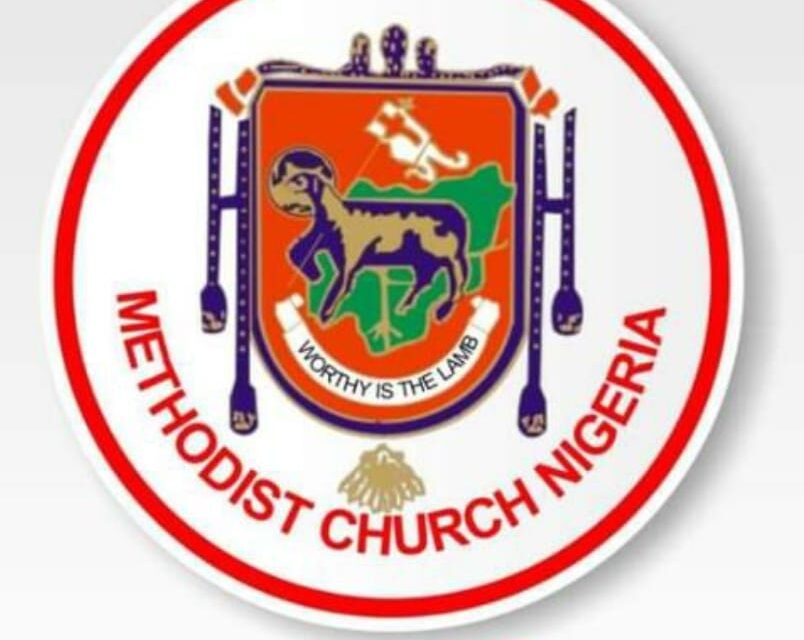
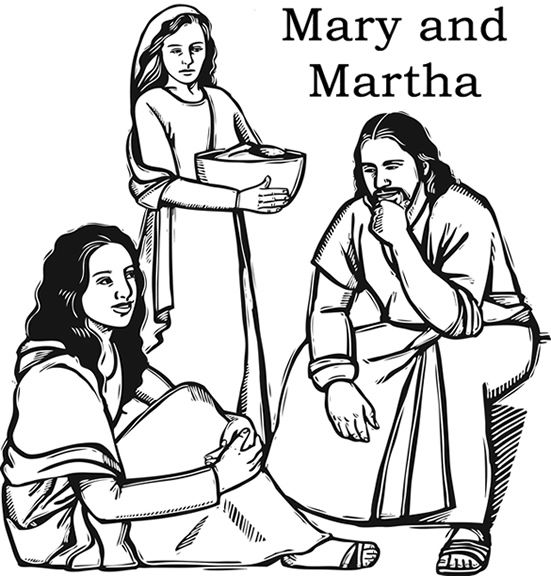
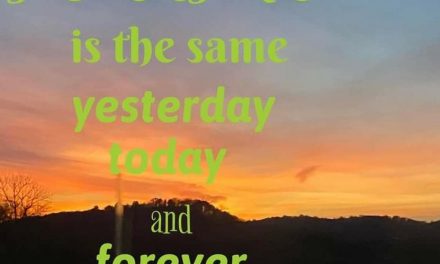
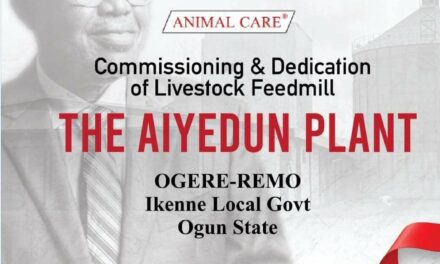
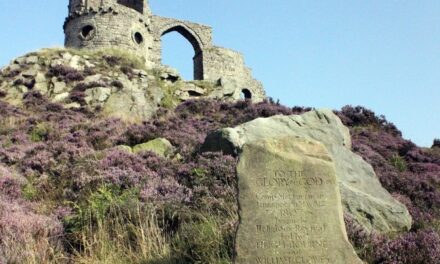





Recent Comments